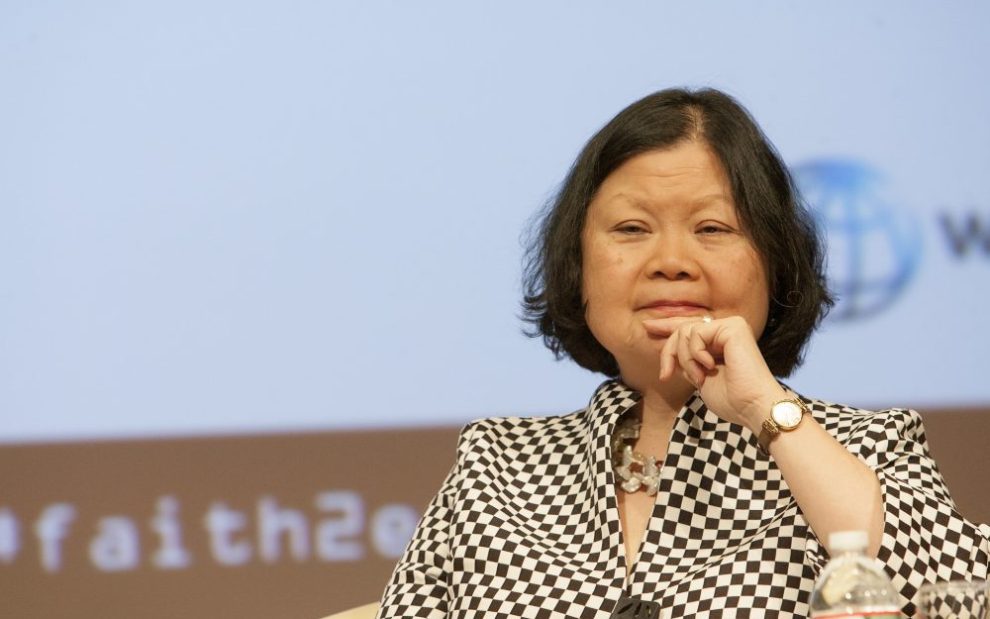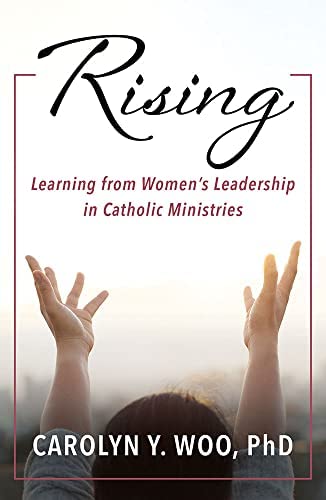Rising: Learning From Women’s Leadership in Catholic Ministries
By Carolyn Y. Woo, Ph.D. (Orbis Books, 2022)
“Dr. Woo, do you think women’s leadership in the church is really possible beyond exceptions because it seems that women are not welcomed by the church and there are no doors that we can even knock on?”
This question was posed by a Catholic high school student to Carolyn Y. Woo, former dean of the Mendoza College of Business at the University of Notre Dame and former CEO and president of Catholic Relief Services. Woo’s response is this book: her reflections on the gifts Catholic female leaders need and the challenges they face, followed by essays by more than a dozen Catholic women in leadership roles. She writes to encourage those who do not see possibilities for women to meaningfully exercise their gifts in ecclesial spaces. While Woo acknowledges that the challenges Catholic female leaders face are real, her perspective is optimistic. Her love of and fidelity to the church—rooted in her education by the Maryknoll Sisters in China and strengthened through student campus ministry experiences at Purdue University—is palpable throughout the book.
Woo’s methodology in this text is noteworthy. She starts from and remains focused on female leaders’ lived experiences, not abstract theological or philosophical ideas about women nor theories of leadership. While the book quotes from and references various church documents, including the 2013 apostolic exhortation Evangelii Gaudium (The Joy of the Gospel) and the 2005 encyclical Deus Caritas Est (God Is Love), it fundamentally gives voice to the real-life, on-the-ground experiences of contemporary Catholic female leaders. In addition to Woo herself, these leaders include diocesan and hospital administrators, a Catholic school principal, a Catholic university president, and leaders of Catholic service organizations. The diversity of voices shows that there is not a single path nor a universal experience of female leaders in the Catholic Church. The grassroots methodology centers female leaders’ own articulations of their insights, joys, challenges, and hopes.
Also of note is Woo’s critique of the idea of the “feminine genius” as described in multiple papal documents. She describes the idea as well-intentioned but “packed with platitudes and stereotypes” that reinforce an unhelpful and long-standing gendered division of labor that limits women’s opportunities. Grounding Catholic leadership in our common baptismal identity is far more fitting than pedestalizing women through exalted ideas about the feminine genius.
Similarly, Woo critiques Pope Francis’ remark that there is a need for a “profound theology of the woman in the Church.” The statement “situates women as a species separate from men, or from the human family,” writes Woo, rather than reflects the truth that “both women and men are holy mysteries; both bear the image of God.”
Despite these thoughtful critiques, Woo’s tone is hopeful and engaging throughout the book. She is passionately convinced that, despite challenges, women’s leadership in ecclesial spaces is alive and well, offering her own testimony and those of multiple other female leaders. And in her chapter entitled “Acting for Women’s Leadership,” she offers concrete steps Catholic organizations can take to increase women’s leadership.
Rising is a must-read for those committed to leadership development and the advancement of women in the ecclesial spaces for building up the body of Christ.
Image: Flickr/World Bank Photo Collection (CC BY-NC-ND 2.0)
















Add comment